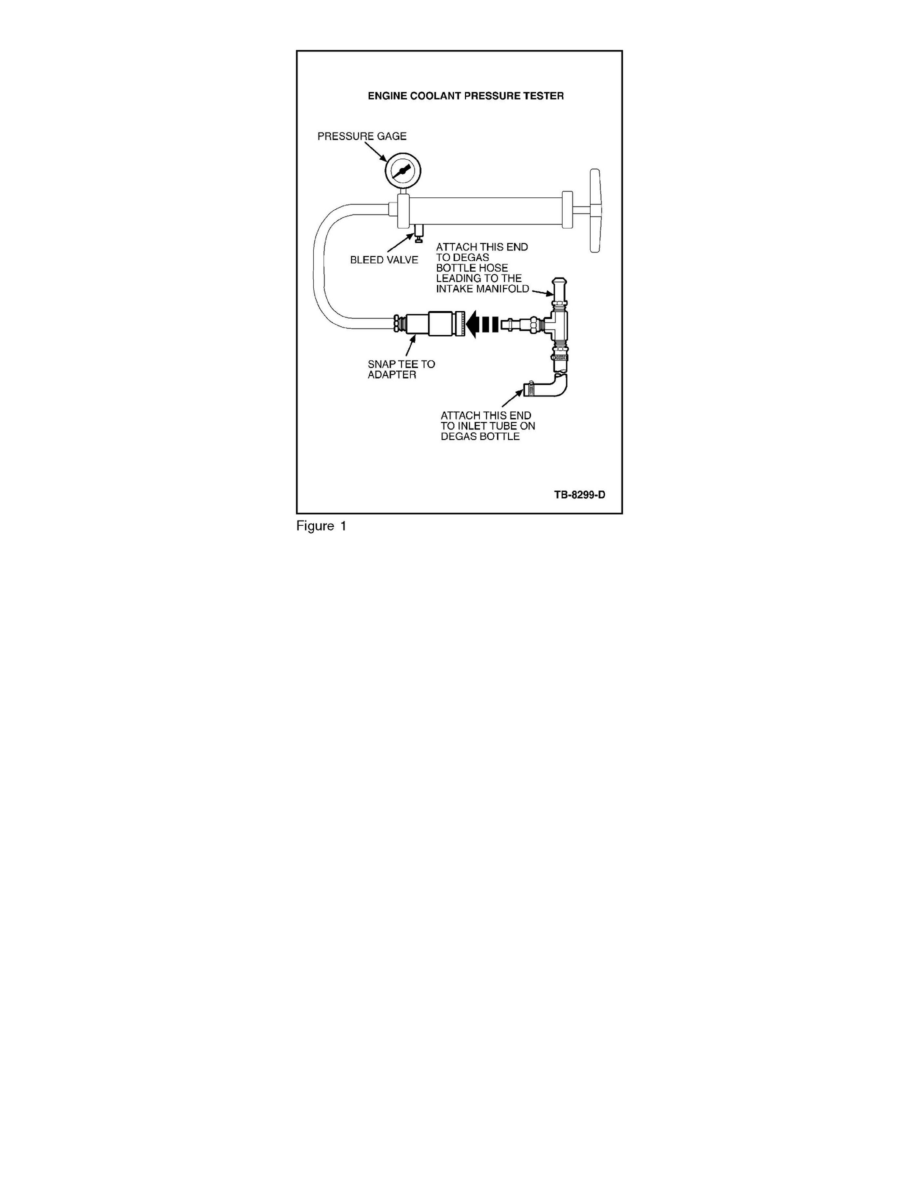F 450 4WD Super Duty V8-6.0L DSL Turbo VIN P (2003)

b. Install a pressure tester in-line with the degas bottle hose using Rotunda 014-R1068 adapter. (Figure 1)
c.
Pressurize the cooling system by using slow and steady pump action on the tester pump handle. Quick or rapid pumps on the tester handle may cause
false readings. Pressurize the system until the gauge pressure levels off, between 12-18 psi (83-124 kPa).
d. The degas cap should release between 12-18 psi (83-124 kPa) allowing the pressure to level off.
(1) If the degas cap releases with less than 12 psi (83 kPa), replace the cap.
(2) If degas cap was replaced or held pressure, apply pressure to 12-18 psi (83-124kPa) and wait 30 seconds for pressure to stabilize. If pressure
holds, go to Step 2e. If pressure drops, continue to next step.
(3) If the gauge pressure drops:
(a) Apply soapy water around the cap to find any leaks.
(b) Check the degas bottle fill neck lip for nicks or cracks. Small nicks can be removed by light sanding with fine emery cloth. Repair or replace
as necessary and re-pressure test.
(c) Replace the pressure cap, if leaks are still present and pressure cap was not already replaced in a previous step.
(d) Pressurize the system and test again, if leaks are still present replace the degas bottle, Refer to WSM, Section 303-03.
e. Record the degas cap holding pressure for later reference, go to Step 3.
CAUTION
COOLANT ENTERING ANY COMBUSTION CHAMBER MAY CAUSE A HYDRO LOCK CONDITION. EVACUATE INTAKE PASSAGES
AND COMBUSTION CHAMBERS OF ALL LIQUIDS USING A SUCTION DEVICE. REMOVE GLOW PLUGS (REFER TO WSM, SECTION
303-07B) TO ASSIST IN VENTING LIQUID FROM COMBUSTION CHAMBERS, BEFORE ENGINE IS STARTED.
3. EGR Cooler Leak Test On Vehicle:
NOTE
NOTE:
A LEAKING EGR COOLER CAN CAUSE EXCESSIVE WHITE SMOKE, INTERNAL COOLANT LOSS (WHICH MAY RESULT IN A
HYDRO-LOCKED ENGINE), AND/OR PRESSURIZED EXHAUST GASES ENTERING THE COOLING SYSTEM. THIS MAY RESULT
